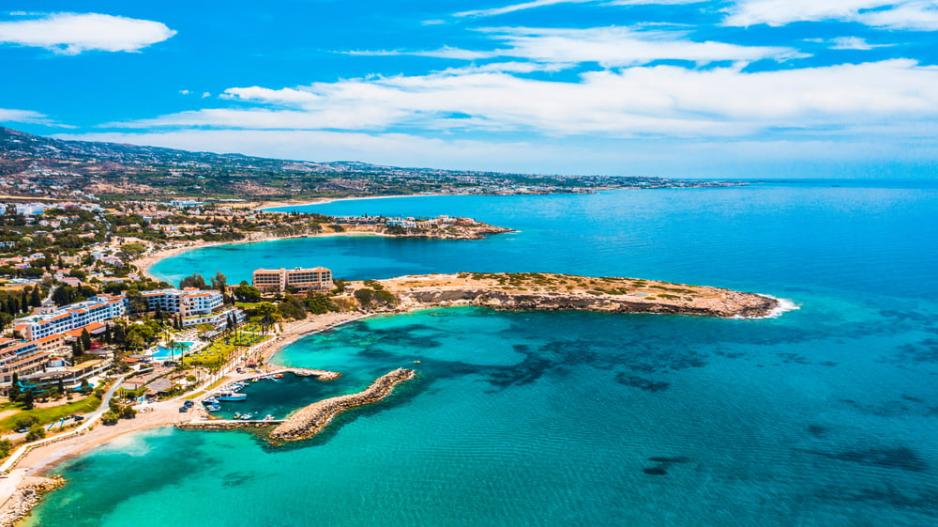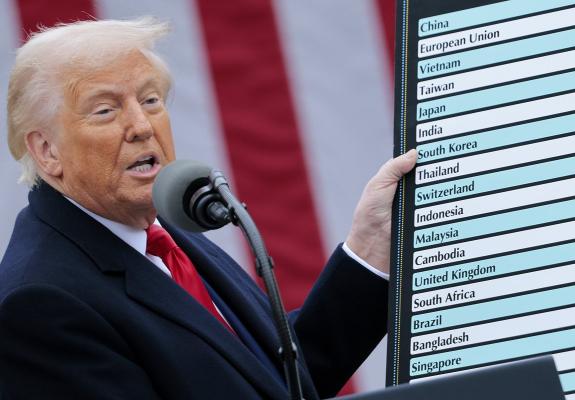The Minimalist Economy: How Consumers Are Spending Less and Gaining More
Can Cyprus Become a Hub for Sustainable Living and Thoughtful Consumption?
In an era of hyper-consumerism, a growing number of people are embracing minimalism—a lifestyle focused on simplicity and intentionality. This shift is not only transforming personal lives but also reshaping entire economies. The minimalist economy, with its emphasis on sustainability, quality, and purpose, is gaining momentum across various sectors. Cyprus is starting to feel the impact of this movement, particularly in tourism, retail, and real estate. As more individuals seek meaning over material wealth, could Cyprus become a hub for sustainable living and thoughtful consumption?
The minimalist economy refers to a broader cultural and economic shift in which consumers prioritize sustainability, experience, and long-term utility over material possessions. This movement is characterized by a few key trends:
-
Reduced Consumption: People are buying fewer but higher-quality items, focusing on durability and lasting value.
-
Experience Over Things: Experiences—such as travel, wellness, and education—are taking precedence over material goods.
-
Sustainable Choices: More consumers are opting for ethical, eco-friendly products, even if they come at a premium price.
-
Second-Hand Clothing: There’s been a rise in the popularity of the second-hand clothing market, as younger people embrace a philosophy of reducing waste in all of its forms.
Several factors are driving the rise of minimalism in today’s world:
-
Environmental Awareness: Growing concerns about climate change and resource depletion are prompting consumers to reassess their consumption habits. As people become more aware of the environmental cost of mass production and overconsumption, there is a noticeable shift towards more mindful purchasing choices.
-
Economic Realities: Economic pressures such as inflation and rising living costs are leading consumers to be more selective about their purchases. As disposable income shrinks, people are seeking value in the products and services they invest in.
-
Mental Clarity: Many have found that a clutter-free lifestyle fosters mental well-being. Research has shown that a tidy and organized living space can reduce stress and increase productivity. Minimalism, with its emphasis on simplifying one's surroundings, is linked to improved mental health.
-
Digital Transformation: The shift to digital goods—whether it’s streaming services, e-books, or cloud storage—has reduced the need for physical ownership. Many consumers are now content with virtual alternatives, diminishing the desire to accumulate material possessions.
The minimalist economy is leaving its mark on various industries, shifting the way businesses and consumers operate:
-
Retail: Brands that embrace sustainability are increasingly popular among minimalist consumers. These companies focus on producing durable, functional, and ethically made products, offering quality over quantity. On the other hand, fast fashion brands, known for mass-producing cheap, disposable clothing, are facing mounting criticism for their environmental impact.
-
Technology: Minimalist consumers are opting for tech products that are durable and repairable, breaking away from the throwaway culture where devices are frequently upgraded. This shift reflects a broader desire for longevity over constant consumption.
-
Real Estate: Tiny homes, compact apartments, and minimalist interior designs are gaining traction, especially among younger generations. This trend is also reflected in the rise of co-living spaces, where individuals prioritize shared experiences and sustainable living.
-
Travel: The minimalist approach is reshaping how people view travel. Instead of opting for lavish, mass-market vacations, more people are seeking out experiences that are meaningful and sustainable, such as eco-friendly accommodations, nature-based adventures, and cultural immersion.
In Cyprus, the minimalist economy is beginning to make waves, particularly in the tourism, retail, and real estate sectors.

Cyprus, known for its natural beauty and rich cultural heritage, is becoming an increasingly popular destination for eco-conscious travelers. Tourists are seeking out sustainable accommodations, such as eco-friendly hotels and villas that minimize environmental impact. There is also a growing interest in agro-tourism, where visitors can connect with the land by participating in agricultural activities and learning about local food production. Hiking trails, eco-tours, and small, family-run businesses are becoming more prominent, as travelers opt for authentic and meaningful experiences over large-scale, all-inclusive resorts.
In the real estate market, there is a noticeable shift toward compact and efficient living spaces. As land becomes more scarce and property prices rise, especially in popular cities like Limassol and Nicosia, many Cypriots and expats are turning to smaller, well-designed homes that maximize functionality. Tiny homes, modular houses, and minimalist interior designs are becoming more sought-after, particularly among younger generations who are looking to reduce their ecological footprint. At the same time, minimalist architecture—focusing on simplicity, natural materials, and energy-efficient features—is gaining popularity.
Minimalist consumers are increasingly turning to handcrafted and locally made products, which support the island’s small businesses and artisan community. From traditional pottery and textiles to olive oil and handmade jewelry, local Cypriot goods are valued for their authenticity and quality. This trend not only promotes sustainability but also preserves the island’s cultural heritage. By focusing on fewer, but higher-quality, items, consumers are helping to create a more sustainable economy that benefits local artisans while reducing reliance on mass-produced goods.
The minimalist economy poses certain challenges, particularly for businesses reliant on high-volume sales. Companies that have traditionally relied on a "fast-fashion" model or mass production may struggle to adapt to changing consumer preferences. However, there are also significant opportunities:
-
Rebranding for Sustainability: Businesses can thrive by aligning with minimalist values—offering fewer but higher-quality products that focus on sustainability, durability, and ethical production. Companies that can cater to this demand will build brand loyalty among eco-conscious consumers.
-
Circular Economy Models: By embracing repair, reuse, and recycling, companies can further appeal to minimalist consumers while reducing waste. Brands that offer repairable products or take-back programs for used goods can establish themselves as leaders in the circular economy.
-
Local Value Creation: In Cyprus, businesses that highlight the craftsmanship, heritage, and sustainability of local products can position themselves as leaders in the minimalist economy. This creates an opportunity for the island to become a hub for quality over quantity in both consumer goods and experiences.
The minimalist economy is more than just a reaction against overconsumption; it represents a broader redefinition of success. Many people are now measuring their happiness not by the amount of things they own but by the experiences they have, the relationships they build, and the positive impact they make on the environment. This cultural shift has profound implications for how societies allocate resources, structure economies, and even measure growth.






